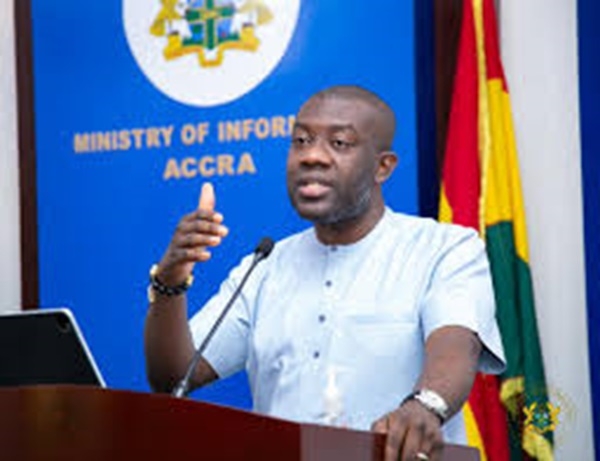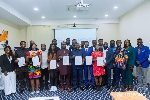Electricity tariffs to be adjusted every three months – Kojo Oppong Nkrumah
 Kojo Oppong Nkrumah
Kojo Oppong Nkrumah
Ranking Member on Parliament’s Economy and Development Committee, Kojo Oppong Nkrumah, has revealed that electricity tariffs in Ghana will now be reviewed every three months.
According to him, this policy is part of the government's broader strategy to ensure cost recovery within the energy sector.
Speaking at a press conference held by the Minority in Parliament on Thursday, March 13, Mr Oppong Nkrumah explained that the move aligns with efforts to stabilise the financial health of the country’s power sector.
“The adjustment of electricity tariffs every three months is meant to reflect changes in production costs, fuel prices, and exchange rate fluctuations,” he stated.
He, however, raised concerns about the impact this policy will have on consumers, particularly businesses and households already struggling with the high cost of living.
“While the government argues that this is necessary for sustainability, we must also consider how it affects ordinary Ghanaians. Frequent adjustments could place an additional burden on citizens,” he warned.
Mr Oppong Nkrumah also criticised the government for not putting in place adequate cushioning measures to mitigate the effects of these tariff hikes.
He stressed that without a well-thought-out approach, the policy could lead to increased hardship and a decline in business competitiveness.
The Ranking Member urged the government to prioritise efficiency in the energy sector rather than relying on periodic tariff increases as a solution.
He called for greater transparency in the pricing mechanisms and urged stakeholders to engage in a broader dialogue on how best to balance sustainability with affordability.
Source: Classfmonline.com/Cecil Mensah
Trending News

Jospong Group partners with Ghanaian scholars in diaspora to boost Ghana’s growth
16:22
Police foil highway robbery, gun down 3 suspects, retrieve 7 weapons
17:38
Ama Mawusi Foundation donates 600 food packs to street children in Greater Accra
16:11
Nation-first, principled and people-centred leadership wins us elections, and Bawumia stands for it – Akosua Manu to NPP
11:57
Jospong Group Chairman spreads New Year cheers with food, cash gifts for over 5,000 Ghanaians
16:06
MP raises insurance, public safety concerns after DVLA suspends new number plate system
11:52
Ghana to discover oil in Northern, Central and Volta Regions - Prophet Stephen Ask-Ackrong reveals
13:40
Bawumia doesn't want a single drop of blood to be shed on account of his personal ambition – Akosua Manu
11:39
Bawa Rock only successful applicant among 31 aggregator bid-Sammy Gyamfi reveals
00:58
Ebo Noah remanded, ordered to undergo psychiatric assessment over doomsday flood prophecy
14:40




